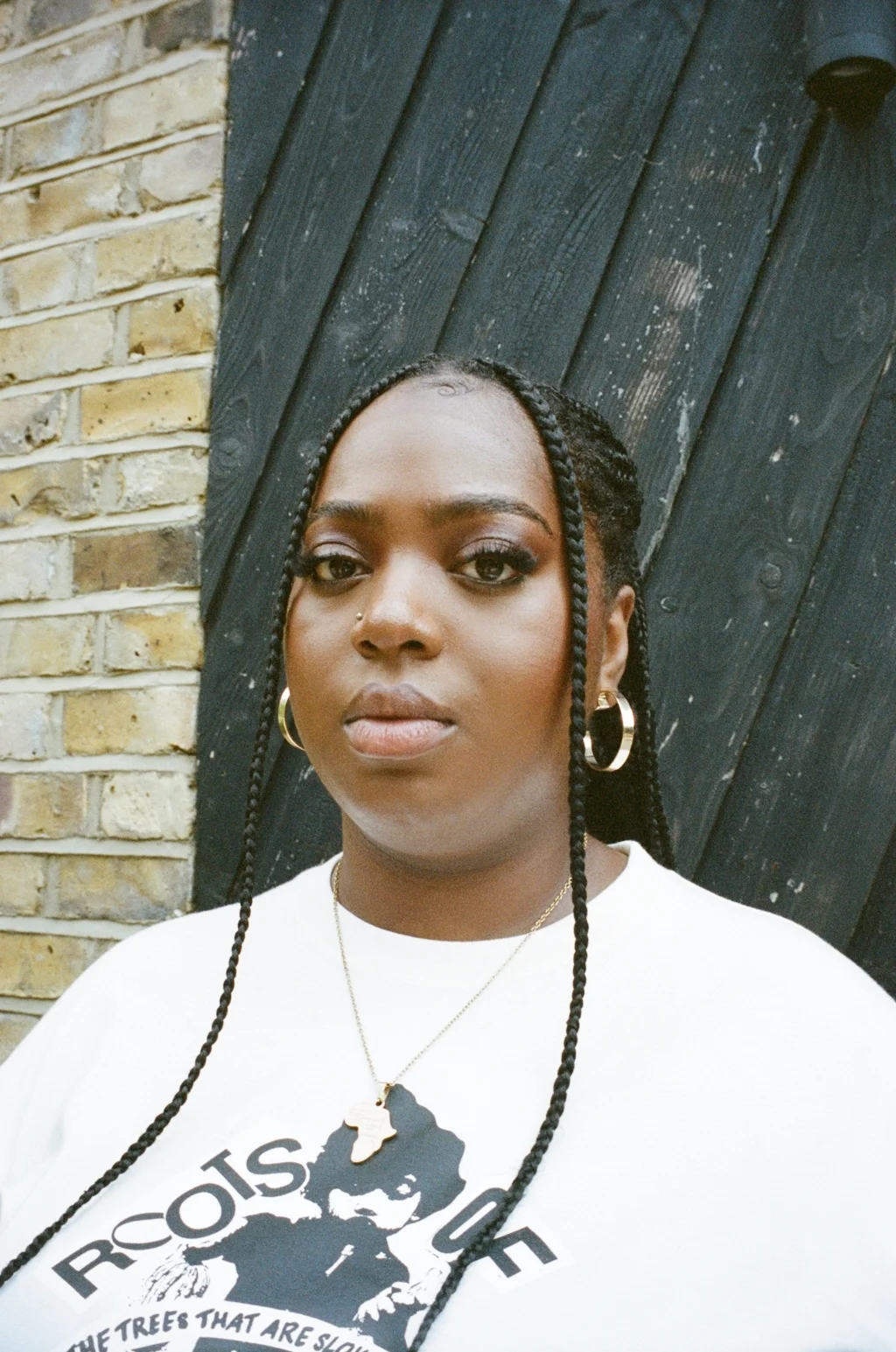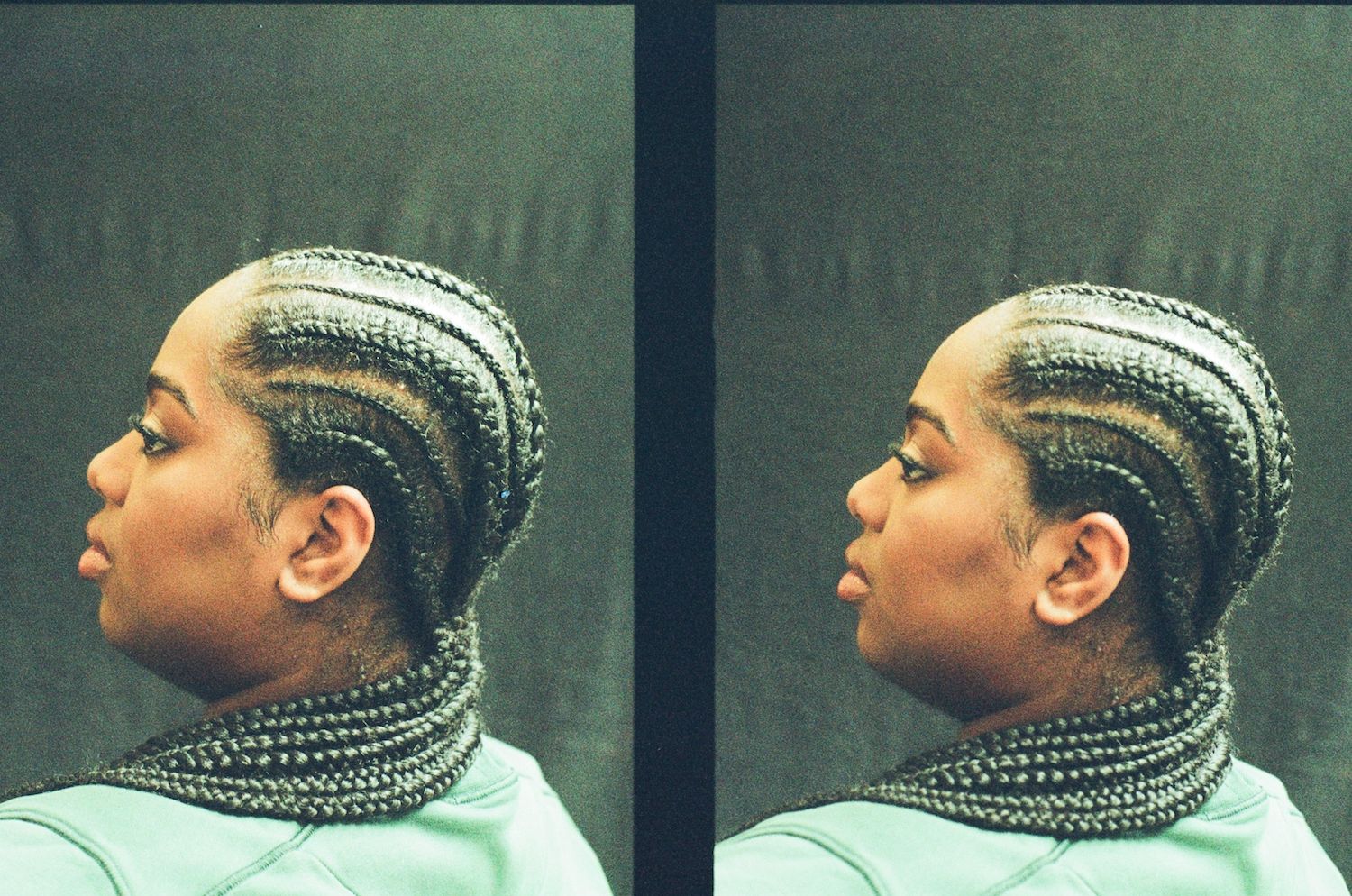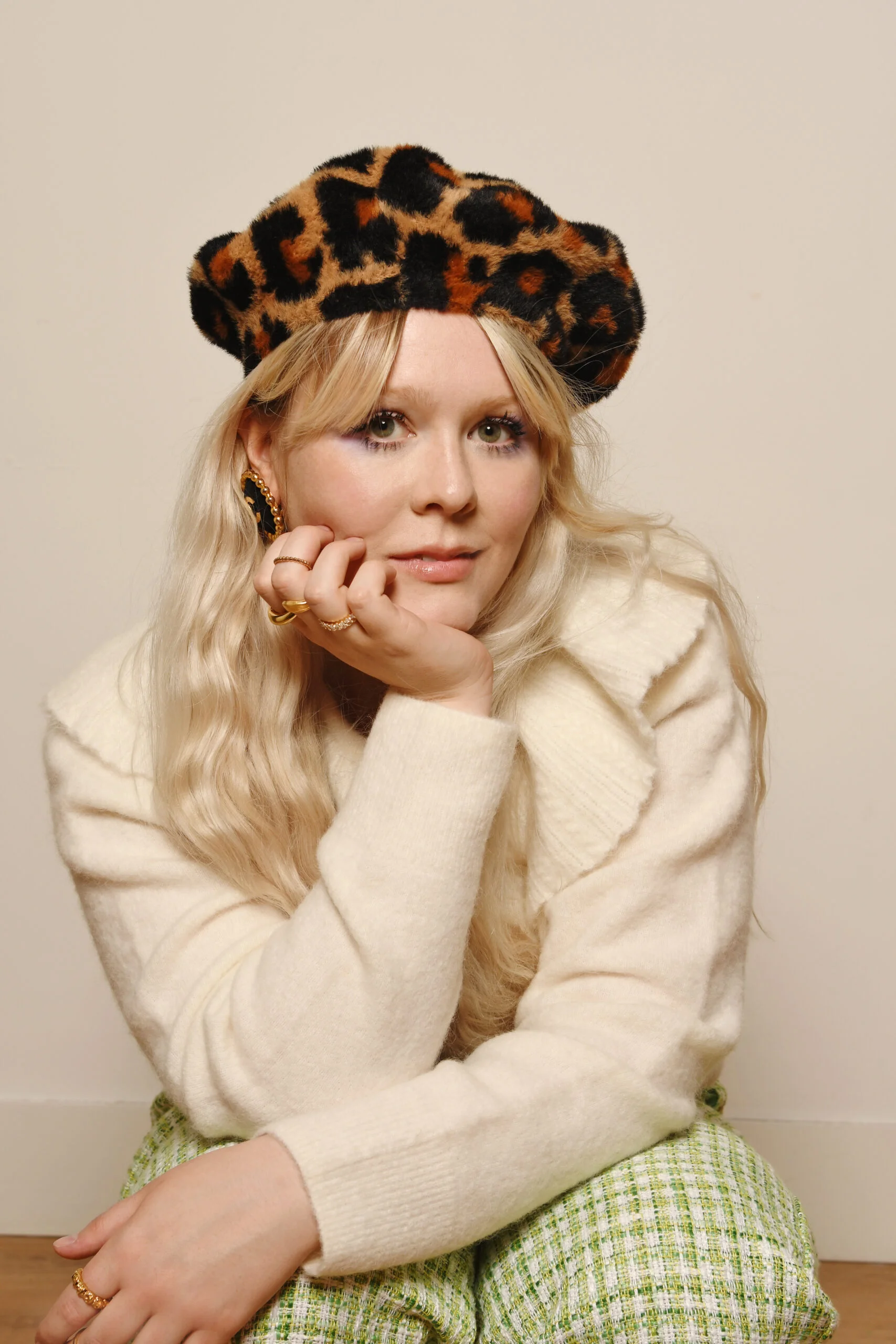
Konyikeh
When you press play on Litany, the debut EP from East London newcomer Konyikeh you won’t quite be ready for what you hear.
Such was my experience when I first heard Sorrow the debut single from the project released back in August. Immediately you are met with a gentle guitar intro flamenco-inspired baseline before her rich vocals enter the soundwaves. The song she wrote at age 13 centres around a time in her life when she was going through a lot, and that lyrical deepness and vulnerability is present throughout the 5 track EP.
The project channels her deep and emotional vulnerabilities, which is refreshingly raw from an artist introducing themselves to the world in their first body of work. Yet a relatability speaks to you as you listen to the project as she reflects on her experiences of being a teen growing up in a black middle-class family. Her initial musical introduction was in classical music, where she played violin and piano and performed in the orchestra and chamber choir, which she took part in throughout her childhood. Now channelling all of this into her music brings a different quality across the project.
Litany is an introduction to audiences alike, and there is a lot to take in from the content and the honesty on display. Whilst these songs reflect a time in her life, it is a peak inside of a window of the kind of emotion and vulnerability, as well as musical quality you can expect to hear from her when you see the name Konyikeh.
Speaking with Konyikeh, we touched on everything from her upbringing, tapping into her vulnerability and emotions, the stunning EP and more.

Starting in the beginning, what would you say is your earliest memory of just listening to music?
Growing up, we’d always take long car rides to school because I went to prep school in West London. So the radio would always play in the background, CDs were the thing, and I loved them. So, all the way the car, like going to places, even just going to the shop, music was playing. Music was always playing, even in the house when my mum was cooking.
You did classical music from a young age playing in orchestras and doing chamber choir. How was that experience for you, and how has it contributed to the music you make now?
It’s certainly given me a great foundation and made me understand the technicalities of music better than I would if I didn’t have to education. And it means that I can also get involved in the production process because it makes me understand the nature of the instruments I want to be involved with. Having that basis then allows me to experiment and go off and do different things. Sometimes I still can be rigid in what I want, which has carried onin my life, but for the most part, I know what I want to achieve when going into a session, which has helped in that way.
How did the shift from being a classical musician to becoming a modern artist happen?
It happened naturally; even though I was playing classical music, I was also listening to a lot of other music. The first I ever wrote, Sorrow, and the first one I ever recorded, Girls Like Us, was something I wrote during my gap year. And that just came naturally to me. I listened to a lot of Billie Holiday, Ella Fitzgerald, and all that stuff like that. That music resonates with me, so it all came naturally and went from there.

You’ve spoken about how, in many of your experiences, you found yourself in musical spaces where you were the only black person. What was that like for you?
I was very much used to doing any blackface in the room. And that’s something that is alienating, but then also, at my secondary school, I was used to being the only blackface in the room. So it became my new normal, but not having peers that could relate to me regarding my skin colour, background, and stuff was very isolating at times. And trying to really tone your blackness down or trying to acclimatise to the people around you, which looking back on it, isn’t very productive at all.
The project is very raw and vulnerable for something you are putting out as your debut EP, but when did the decision to put these songs out happen for you?
So it’s funny, because I wrote these songs, not knowing that they would go anywhere, I wrote them in my bedroom, like by myself, but just like a comfort blanket-like coping mechanism. And then it was only years later, when I was offered a record deal, that I knew these were the songs I wanted to put out because I’d moved away from that point in my life. But if you asked this five years ago, I wouldn’t have been able to put those out and release those songs because they’re just too vulnerable for me. That’s what makes it so freeing. I thought they weren’t going to go anywhere. They weren’t going to do anything. It was just for me and my solace.
As a debut single, Sorrow‘s lyrical content and meaning are powerful. How did you write that song?
I wrote a song on a walk home from school when I was about 13 or 14, and I was going through a lot in my personal life, and things during that time weren’t great. I felt like an outsider and had a lot of feelings that I was experiencing, which is translated into the music video as well. So yeah, I just based around my personal life of coming from a black middle-class family where you might feel like you always have to get put on a show sometimes, even when you do not feel like you’re part of, like, the perfect nuclear family dynamic that you present to the world.
As somebody who has been playing instruments and doing music from a young age, how did this as an art become the thing you used to express yourself?
Cause it was all I knew, like some people write diaries, some people journal, I hated English. Music was always at my solace, and I had to find a way of expressing myself. I couldn’t do that; I did that by just composing music, which I was taught to do. Because I felt that I wasn’t enough, songwriting just came naturally to me, which is funny because you know I didn’t like English and didn’t love poems.
Sorrow was the first single you released. What space were you in when you wrote the song?
I spent many of my teenage years crying in my room but then putting on a brave front when I was outside. And it was funny because to everyone else, happiest and most go-lucky person in the world, but I just found it a bit weird and strange that no one could see through it because there was a very thin. That’s where that lyric came from, and it wasn’t just me. It was a lot of people, a lot of my friends, and it was how society pressures you to have nice things, to be good at this or that, to perfectly present yourself. However, as soon as that door closes and you are by yourself, no one can see through unless you open up. And it’s unfortunate because sometimes you are waiting for someone to see through your façade and help you. But unfortunately, that’s not always the case.
Did you have a particular plan when you were putting the EP together?
So initially, there were four songs, and then I added one because it seemed like a journey through my brain. And then, I added Joy and Pride towards the end of last year. There was no specific message I wanted to convey; it was more just these are my teenage years, the most challenging parts of my life, summed up into five songs, and I hope that you can relate to some of them. These were the ones that resonated most with me when I was listening back so, and the team that I work with the most.

Thinking of the visual aspects of the project, the music videos specially, how did that side of things come into play with the music?
So, with Sorrow, I had a clear vision of how I wanted the music video to be. With Teenage Dream, there was more of a director’s input. So, we will discuss the idea with others and go from there about it. He was the one who suggested the therapy scene, which was great because therapy has been made a lifesaver for me. And then Joy and Pride because we built it around family. So, if we look at the videos, the first focuses on the mother’s story, the second focuses on the brother, and the third focuses on the father and his relationships with people in his family. So yeah, they were done like there was a story arc throughout.
In people getting to know you by this EP, how do you feel about this project as an introduction to you as an artist?
I’m introducing myself to the world in the most vulnerable way possible, which is scary. But people should take from that, like, it’s not too scary to be vulnerable, having sat on these songs for the past ten or so years and then obviously writing them over the past couple of years. It’s been a cathartic process, like a diary and journal entry ready for people. And usually, people keep a diary private and don’t want anybody to see it, but I’m prepared for people to open it up, tear it up, look into it, and examine it. I’m thankful that I’ve gotten to a place where I’m lucky enough to be able to do that. It’s not the end of the world to be vulnerable. That’s a message people should Like, carry on and take in their lives.
As that young girl who went through all those experiences and getting to this moment, how do you feel about where she is now and where she is going in the future?
She’d be surprised that she is here and would be surprised she’s written the songs and that they’re going to be proud of the world and that people will hear them. Sitting down here and talking about them is a huge step, rather than just being anchored in the world, just like shutting myself in my room. It’s funny because the songs came at a very vulnerable time, and it feels like to have more great music. Great music means that I have to be more vulnerable. So I’m not looking forward to that because one of the most vulnerable songs, which seems to be people’s favourite, is Joy and Pride, and that was like one of my most vulnerable songs ever, so that for me is like, Oh, my God, I’m going to be even more vulnerable, but we’ll see, we shall see.
Finally, how are you feeling about everything at this current moment?
It doesn’t feel real like it’s a bit surreal. It’s wild that people are hearing my innermost vulnerable thoughts. But I feel good, I feel good. I feel happy. I feel happy it’s out because it’s been a long journey to get here.
Litany is out now, follow Konyikeh via @konyikeh
Interview Seneo Mwamba




